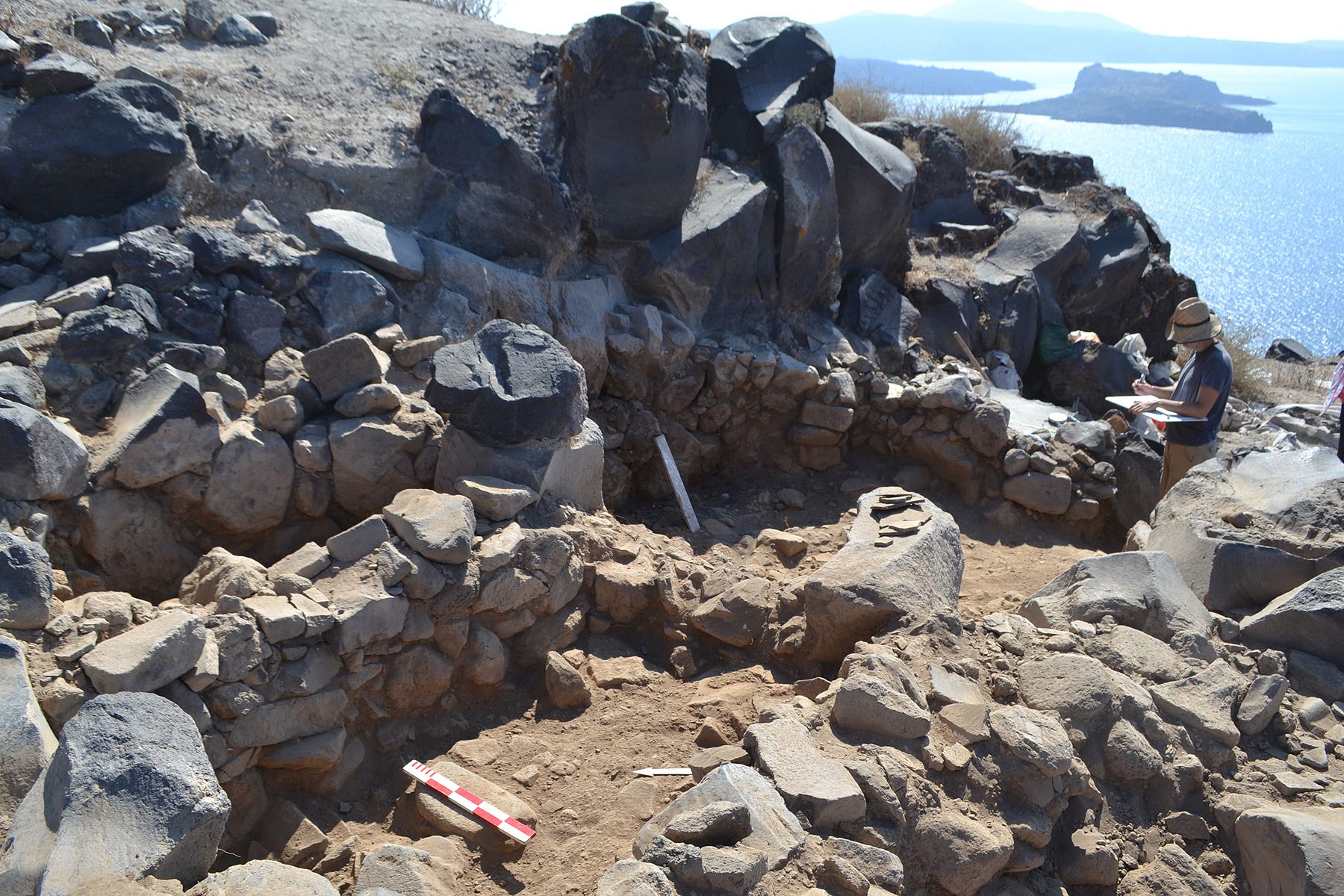
Archaeologists working on the Greek island of Thirassia have uncovered what they believe to be an ancient monument of unknown origin, which may shed light on the earliest cultures to inhabit the area.
Experts from the the Ionian University, the University of Crete and the Cycladic Antiquities Bureau made the discovery as they continued their excavations on the prehistoric settlement in Thirassia, one of the Santorini islands.
Related: Ancient Greece: Massive Tomb Holding Treasure and Mysterious 3,400-year-old Body Uncovered
In the area, they uncovered a series of different stone structures built on the mountainous island in terraces. The separate buildings appeared to be linked by a series of stone platforms in a dense formation, suggesting the island had a relatively high population when it was inhabited.
One of the buildings among them appeared to be an ancient monument or temple from the Cycladic Bronze Age period, in the third and second centuries. The purpose of the monument has baffled archaeologists but the Greek Ministry of Culture and Antiquities has said in a statement that the oval structure was decorated with a number of ornamental features. It is unknown whether the monument was devoted to a particular god.
The archaeologists were able to date the structure from a number of artefacts recovered from the site including pottery and polished stone tools. Implements for crushing and large storage vases were also found. Other important clues about the Bronze Age people were discerned from bones, shells, wood and some other organic items found in the settlement.
Thirassia, formed by volcanic eruptions tens of thousands of years ago, was covered in layers of volcanic ash and lava which obscured the dig site. However the settlement had long been abandoned beforehand.
In recent months, the Greek government has unveiled a series of discoveries from across the country. In September, archaeologists on the island of Euboea found a temple dedicated to Artemis, the goddess of hunting and the moon.
After a century of searching for the temple, a Swiss-led team, discovered it six miles from the site where they had originally believed it to be. The first clues to the location of the missing temple were found when researchers recovered parts of a massive wall dating back to the classical area. It appeared to be part of a portico or roofed colonnade from the period dating between 300-500 B.C.
Uncommon Knowledge
Newsweek is committed to challenging conventional wisdom and finding connections in the search for common ground.
Newsweek is committed to challenging conventional wisdom and finding connections in the search for common ground.
About the writer
Callum Paton is a staff writer at Newsweek specializing in North Africa and the Middle East. He has worked freelance ... Read more
To read how Newsweek uses AI as a newsroom tool, Click here.








